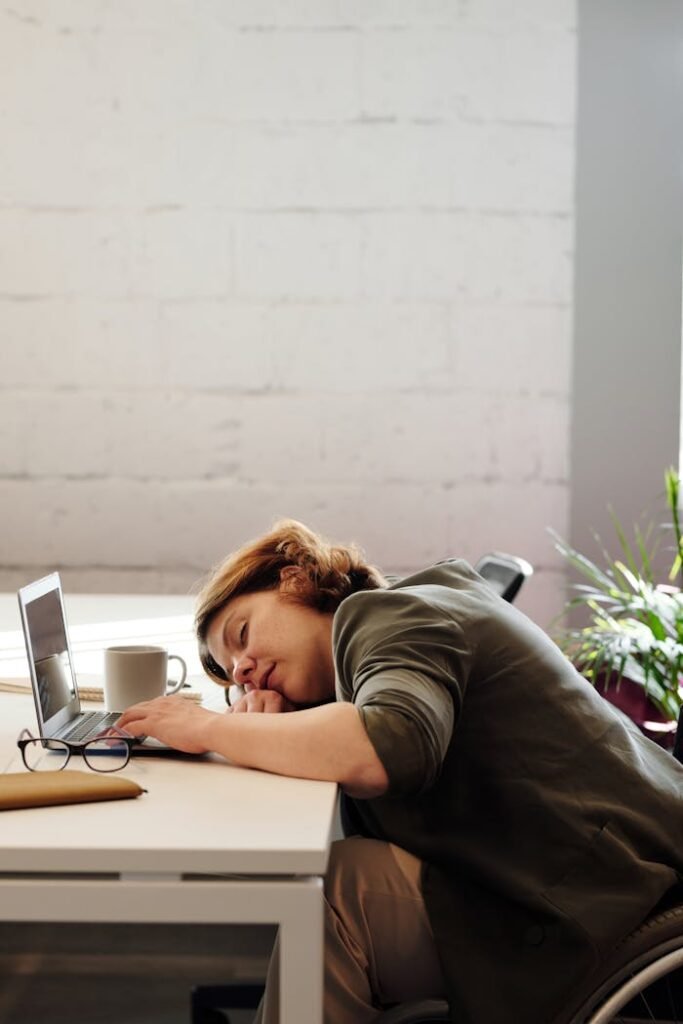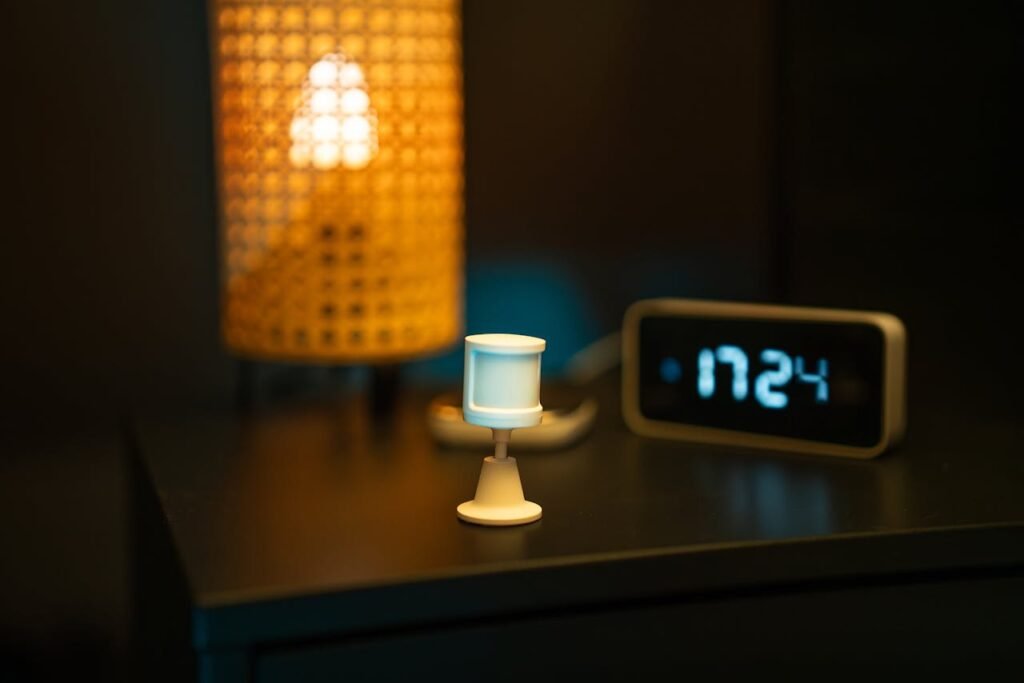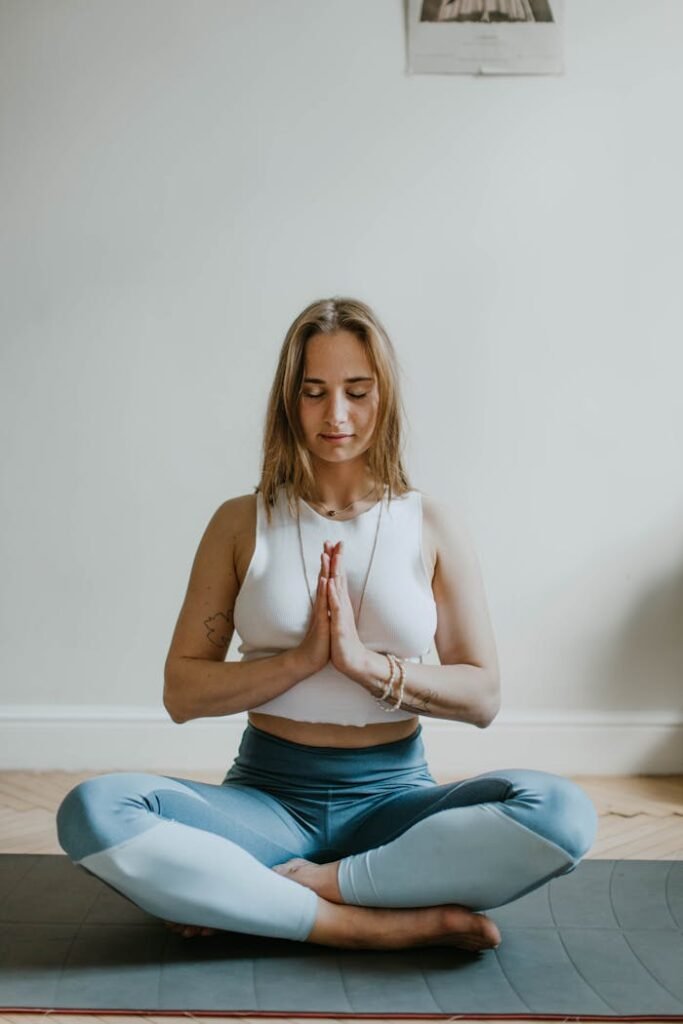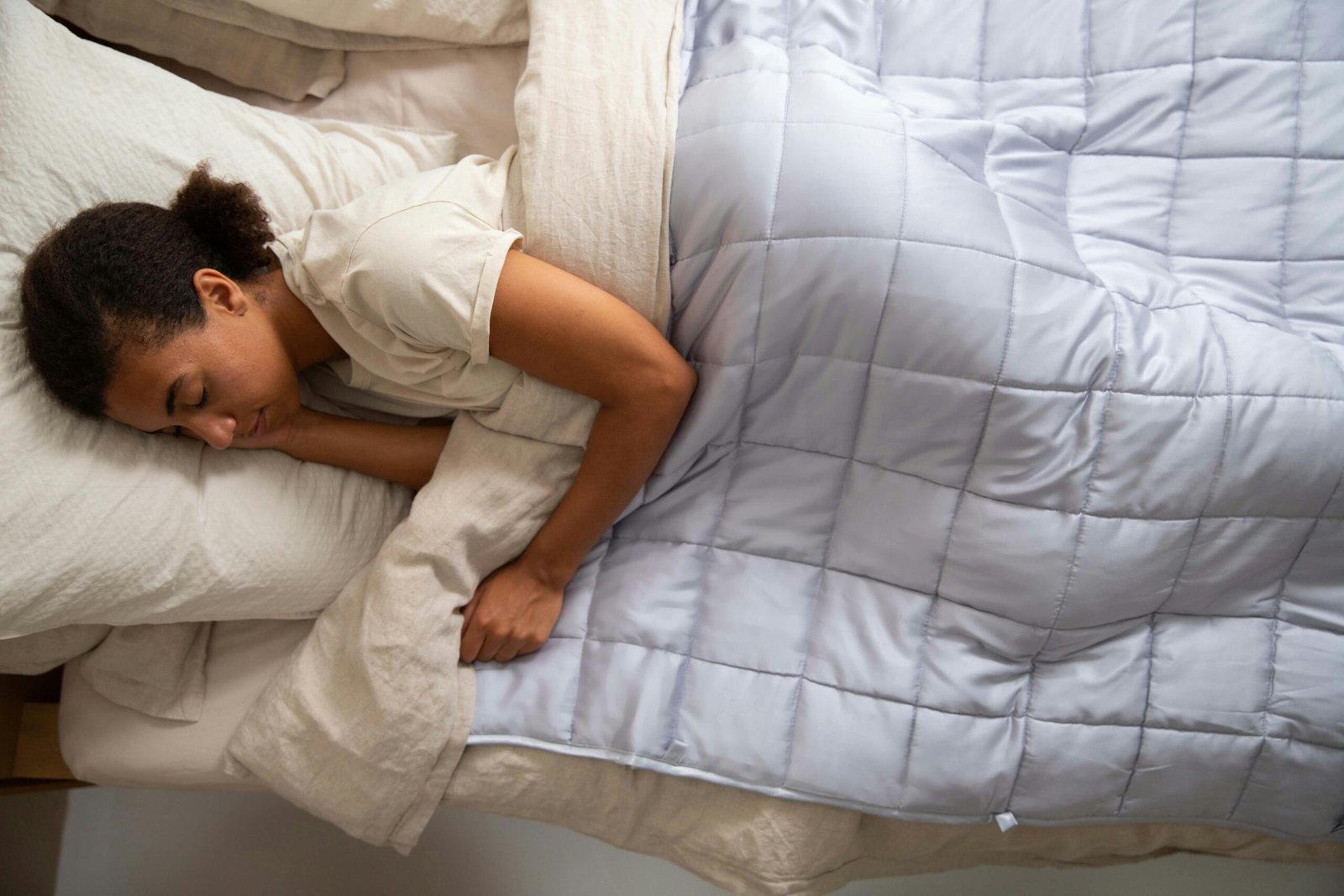Contents
Introduction

Imagine trying to recharge your phone with a broken charger—no matter how long you leave it plugged in, it never reaches full power. This is exactly what happens to your mind and body when you neglect your mental health or don’t get enough sleep. Both are essential to fully recharge, yet too often, we overlook how deeply connected they are.
Stress and Sleep: The Role of Cortisol

Stress, anxiety, and their effects on sleep are well-documented in scientific studies. The adrenal glands release cortisol when stressed. Cortisol is important for the “fight or flight” response. Chronic stress, however, leads to elevated cortisol levels, which can disrupt sleep. When cortisol levels remain high, the body’s natural circadian rhythms are disturbed, making it difficult to fall asleep and maintain a restful state throughout the night. The result may be falling asleep on the job or when performing your daily tasks.
Anxiety and Sleep
Anxiety, often a product of chronic stress, introduces another layer of complexity in sleep disturbances. Individuals experiencing anxiety frequently report racing thoughts and heightened arousal levels, both of which create significant barriers to achieving a restful sleep. Anxiety may cause increased heart rate and muscle tension, thereby heightening levels of arousal incompatible with sleep.
Practical examples further illustrate this phenomenon. Consider a person juggling multiple responsibilities at work and home. The perpetual release of cortisol and accompanying anxiety symptoms likely impairs their ability to secure adequate sleep. Conversely, chronic sleep disruption exacerbates anxiety, creating a vicious cycle difficult to break.
The Role of Technology in Affecting Sleep and Anxiety

Modern technology has become an integral part of daily life, but its influence on sleep and anxiety is increasingly concerning. One of the most significant ways technology impacts sleep is through the blue light emitted by screens on devices such as smartphones, tablets, and computers. Blue light exposure, particularly before bedtime, suppresses the production of melatonin, a hormone that regulates the sleep-wake cycle. Reduced melatonin levels can lead to difficulties in falling asleep and reduced sleep quality which can lead to increased anxiety and stress levels the next day.
Cons: Role of the Internet on Stress Levels and Sleep
The constant connectivity enabled by modern technology contributes to information overload. The perpetual stream of notifications, social media updates, and email alerts can overwhelm the brain, engendering heightened levels of stress and anxiety. The mental burden of staying always ‘on’ disrupts the ability to unwind, which is crucial for a restful sleep. Moreover, excessive screen time can delay bedtime, as individuals may lose track of time while engaging in digital activities, further disrupting sleep patterns. There is also some evidence to suggest EMF exposure from our electronic devices can disrupt the melatonin production that facilitates falling asleep.
Pros: Role of Sleep Tracking Apps and Gadgets

However, technology also presents opportunities for improving sleep and managing anxiety. Various sleep tracking apps and gadgets monitor sleep patterns, providing valuable insights into sleep quality and duration. These tools can aid in identifying issues such as sleep apnea or restless sleep and can suggest personalized improvements.
Mental health apps and online courses designed for relaxation and mindfulness, such as guided meditation or breathing exercises, can also help manage stress and create conditions conducive to better sleep. As an example: “Breathing for Sleep” is an educational program developed by researchers to help improve your sleep by clearing your sinuses, enhancing your breathing and clearing anxious emotions. This helps reduce both the physical and emotional distractions which lead to insomnia. If you would like to buy their program, click here* to learn more!
*As an affiliate, I may earn a small commission from purchases you make. Each sale helps support this site. Thank you!*
How to Reduce Information Overload
While technology holds promise, it is essential to approach its usage mindfully. Establishing boundaries, such as digital detoxes or implementing ‘screen-free’ periods before bed, can mitigate adverse effects. Employing features like ‘night mode’ on devices to reduce blue light exposure can also be beneficial. By balancing the use of technology, individuals can harness its benefits while minimizing its negative impact on sleep and anxiety.
Impact of Sleep Deprivation on Mental Health
Sleep deprivation and chronic insomnia are prevalent issues that profoundly impact mental health. Numerous studies have highlighted the significant link between inadequate sleep and mood disorders. Sleep deprivation often leads to irritability, increased stress levels, and heightened anxiety. Chronic insomnia is prominently associated with clinical depression; individuals suffering from persistent insomnia are more likely to develop depressive symptoms over time. The relationship between poor sleep and mental health forms a vicious cycle, where each condition intensifies the other.
5 Proven Solutions to Improve Sleep and Reduce Anxiety
Improving sleep quality and managing anxiety require a multifaceted approach that involves lifestyle changes, stress-reducing activities, and potentially seeking professional help. One fundamental strategy is to maintain a consistent sleep schedule. Going to bed and waking up at the same time each day helps regulate your body’s internal clock, making it easier to fall asleep and wake up feeling refreshed.
1. Calming Bedtime Routine

Creating a calming bedtime routine is another effective method for enhancing sleep quality. Activities such as reading a book, taking a warm bath, or practicing relaxation techniques can signal to your body that it is time to wind down. Reducing screen time before bed is also crucial, as the blue light emitted by smartphones and tablets can interfere with the production of melatonin, the hormone responsible for sleep regulation.
2. Dietary Habits

Dietary habits play a significant role in both sleep and anxiety levels. Limiting caffeine and alcohol intake, particularly in the hours leading up to bedtime, can have a positive impact. Caffeine is a stimulant that can disrupt sleep, while alcohol may initially induce drowsiness but can lead to fragmented sleep and increased anxiety levels.
3. Mindfulness Meditation

Mindfulness meditation and deep breathing exercises can reduce stress and anxiety by promoting relaxation and increasing awareness of the present moment. Practicing mindfulness meditation helps to lower cortisol levels, thereby reducing stress and anxiety. This relaxation response can lead to improved sleep quality by making it easier to fall asleep and stay asleep throughout the night. Additionally, mindfulness enhances overall mental well-being, which further supports healthy sleep patterns.
4. Physical Exercise

Physical exercise is a proven method to enhance mood and reduce stress. Engaging in moderate aerobic activities like walking, jogging, or yoga can tire the body in a healthy way, making sleep come more easily. Regular exercise can also help to reduce anxiety and depression, as well as improve self-esteem. Exercise can also help to improve focus and concentration, making it easier to stay motivated and productive.
5. Professional Help

Finally, professional help, such as cognitive-behavioral therapy for insomnia (CBT-I), can be invaluable for those struggling with chronic sleep issues and anxiety. CBT-I focuses on changing the thoughts and behaviors that promote good sleep, offering long-term solutions rather than just temporary relief. Sleep medicine specialists may also provide solutions to insomnia, sleep apnea, and other similar sleep problems that are not well-controlled by the above solutions.
Conclusion
Stress and anxiety from sleep disturbances are a big problem that can be easily addressed. Creating a calming bedtime routine can reduce the negative effects of using electronic devices. Creating healthy dietary habits reduces the risk of nutritional imbalances that affect sleep quality. Mindfulness meditation calms the mind and allows brainwaves conducive to sleep. Physical exercise naturally causes tiredness and allows the brain to reset after a long day. And if none of those work for you, there is always professional help available. All in all, the journey to better sleep and mental wellness starts with identifying the causes of sleep disturbances and then addressing them with proven strategies.

